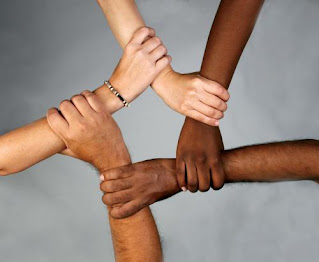Race is commonly perceived as something that is inherent in our biology, and so inherited across generations. Ethnicity, on the other hand, is usually understood as something we acquire, or self-ascribe, based on factors like where we live or the culture we share with others. Race and ethnicity are used to categorize certain sections of the population. In basic terms, race describes physical traits, and ethnicity refers to cultural identification. Race may also be identified as something you inherit while ethnicity is something you learn.
RACE vs. ETHNICITY
Many people have a misconception about this. They think of both race and ethnicity as one. But, they are clearly different from each other.
Race:
- Narrow
- Based on similar physical and biological attributes
Ethnicity:
- Broad
- Based on cultural expression and place of origin
RACE
Race is usually associated with biology and linked with physical characteristics, such as hair texture or skin color and covers a relatively narrow range of options. While some may be considered to be of a certain race, Black for example, people may identify more with their individual ethnicity, as opposed to race. This could apply for any member of any race.
Main ancient races in the world are, The Caucasian race living in Europe, North Africa and West Asia, the Mongoloid race living in East Asia, Australia, and the Americas, and the Negroid race living in Africa south of the Sahara.
ETHNICITY
Ethnicity is a broader term than race. The term is used to categorize groups of people that have a common national or cultural tradition.
CULTURE
Culture in its broadest sense is cultivated behaviour; that is the totality of a person's learned, accumulated experience which is socially transmitted, or more briefly, behaviour through social learning. Culture is an umbrella term which encompasses the social behavior and norms found in human societies, as well as the knowledge, beliefs, arts, laws, customs, capabilities, and habits of the individuals in these groups. Culture provides important social and economic benefits. With improved learning and health, increased tolerance, and opportunities to come together with others, culture enhances our quality of life and increases overall well-being for both individuals and communities. RACE AND RACISM
Races are defined as populations differing in the incidence of certain genes but actually exchanging or potentially able to exchange genes across the boundaries (usually geographic) that separates them. While racism is a prejudice or discrimination against someone based on his/her race.
Racism is the belief that groups of humans possess different behavioral traits corresponding to physical appearance and can be divided based on the superiority of one race over another.
THE HUMAN RACE
As you may have guessed, opinions differ among experts. Some believe not only that humans are subdivided in biological races, but also that inherited differences between races result in a range of different abilities. By contrast, others regard human races as entirely cultural constructs unrelated with biological diversity. There are intermediate possibilities too.
CONCLUSION
Race and ethnicity are used to categorize certain sections of the population. In basic terms, race describes physical traits, and ethnicity refers to cultural identification. Race may also be identified as something you inherit while ethnicity is something you learn. The issues surrounding what is considered race and what is considered ethnicity are not always clear. This is why our understanding as well as models, both racial and ethnic, are constantly evolving.
REFFERENCES: Ballard, R., 2002. Race, ethnicity and culture, Blum, L., 2019. in "Race: What we mean, and What we think we mean", in I'm not a racist, but... Cornell University Press, https://www.verywellmind.com






👍👍👍👍
ReplyDelete